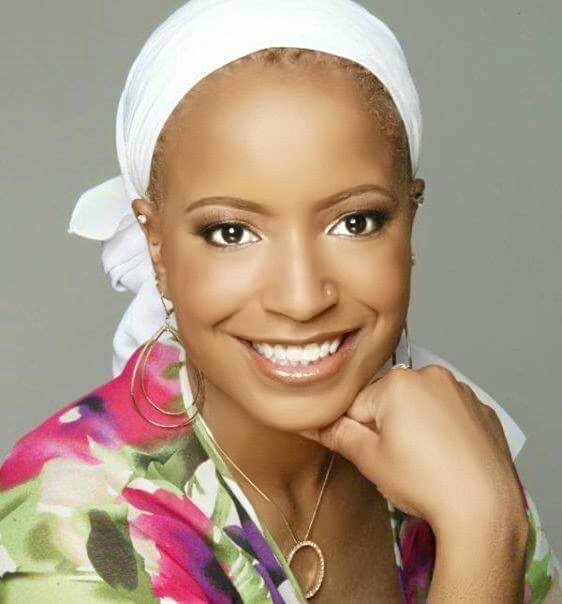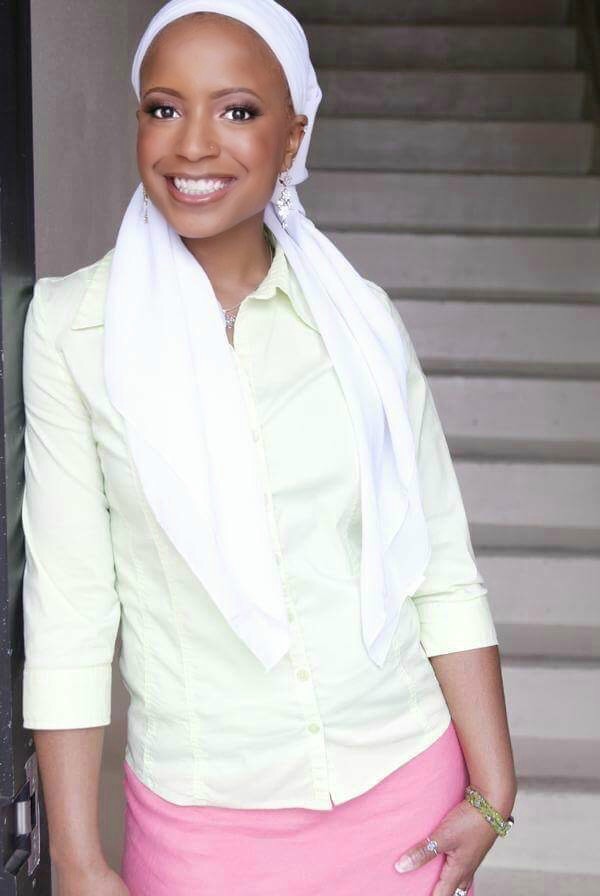She’s the festival director for #BlackMuslimGirlFly Film Festival, which was founded in February 2018 to highlight films and projects created by Black Muslim Girls from all over the world. A writer, director, producer and founder of Audaz Entertainment, LLC, Nia Malika Dixon took time to speak with Trendy’s Samantha Ofole-Prince to discuss this year’s festival.

What sets #BlackMuslimGirlFly Film Festival apart from the various annual film festivals held each year?
The thing that sets us apart is the focus on Black Muslim women and their perspectives. This narrative gets lost in the white-washed world of film and television, especially in the U.S. We are an international festival on purpose. American cinema and television centers a cis-hetero-white-male perspective and we as Black women, very rarely appear, let alone Black Muslim women. The Black female perspective is global, ironically enough due to the cis-hetero-white-male colonization of the world. We belong to a wide, Black Diaspora and #BMFF2019 centers those global voices of Black storytellers who are Muslim.
What hard lessons did you learn from organizing the first festival, what roadblocks did you face when you decided to start, and did you have any unique challenges?
One of the hardest lessons I learned from last year’s inaugural festival is that bringing those Black Muslim female-centered voices to the forefront is going to be met with contention and confusion, and we have to have control of the narrative in a confident and powerful way that educates and connects people. It’s a struggle, even from behind the scenes. The white male gaze keeps popping up as the default, and the different kinds of stories being made are still held to that standard. Making our own space is a challenge, especially when it comes to getting funding and support. I’ve been forced to fit our festival into the “mainstream” context, with that white male perspective being the default lens in order for people to see the value in promoting our inclusive stories. Because I’m doing something never done before, there’s skepticism and doubt, even though there are statistics to back up the need for stories like the ones selected for our festival. So, I’ve fully invested my life savings into this endeavor, funding it on my own. My goal is to have more support in the coming years, from ally brands who connect with and see the importance of bringing these diverse stories to becoming “mainstream.”
Have you made any changes this year?
This year we streamlined the schedule and added an awards ceremony to not only recognize the winning films, but to also honor a person in the industry currently working to shift the focus of power and support to women of color and other marginalized groups. This year we present the first annual Harmon-Dixon Trailblazer award to Cheryl L. Bedford for founding Women of Color Unite and the JTCList. We also moved to a larger venue, the Regency West in Leimert Park, owned by Anthony and Vanessa Bell Calloway. They were very supportive and granted us a discount as we are a volunteer run festival.
With five short films, experimental projects, and webisodes to be showcased, is there one you are particularly excited about?
One film that stood out, is a story of a little Black girl in the city learning how to run a street vending business with her father. The character stood out because she held her own in a male dominated arena and she also learns a valuable lesson in empathy. Another that stood out is a short film about empathy,
the festival’s theme this year, that showed how a young woman found the courage to step out of her circle of popular friends to stand up for a girl wearing a scarf who was being made fun of. All of the films this year strike a chord and will leave an impact on the audiences.
What do you envision for the future of this film festival?
I envision the festival growing into more than just a platform to showcase talent, but also for developing talent and helping to distribute that talent. We currently host a writer’s group, including people outside of California, and a network on the Mighty Networks platform to bring us all together to further push the boundaries of “mainstream” media and entertainment. We want to deconstruct “mainstream,” and redefine it to include all the intersectional underdogs in the forefront. We want to successfully continue to challenge the status quo, and reach a worldwide audience with these fresh stories, and their filmmakers.
The idea behind #BlackMuslimGirlFly Film Festival is to garner more exposure for projects created by Black Muslim Girls, do you have any success stories from the previous festival you can share?
Last year’s festival, our first, is a success by just existing. We’ve changed the conversation, and we’re controlling the narrative. Each of the winners last year received mentorship, and access to people in the industry they may not have had the opportunity to meet. Our ambassador last year, Thembisa Mshaka also gifted each winner with her book, Put Your Dreams First: Handle Your [Entertainment] Business. And, thousands of people around the world have access to see their films. We’d like to do more to expand mentorship for up and coming filmmakers and connect them with more resources to create more films inclusive of women of color, Muslims, Black women, to the global market. We’d like to partner with established studios, companies that serve filmmakers, and other businesses that can help further their success and reach large audiences around the world.

The 2ndAnnual #BlackMuslimGirlFly Film Festival “Our Stories. Our Way” will be held Sunday, December 15, at the Regency West Theater located at 3339 W. 43rdStreet, Los Angeles, CA 90008. (Leimert Park) from 9a.m. to 2 p.m.


Leave a Reply